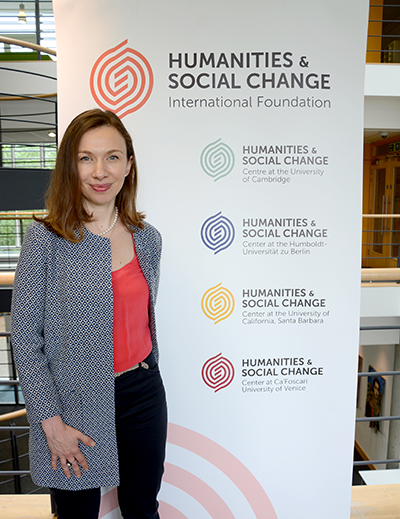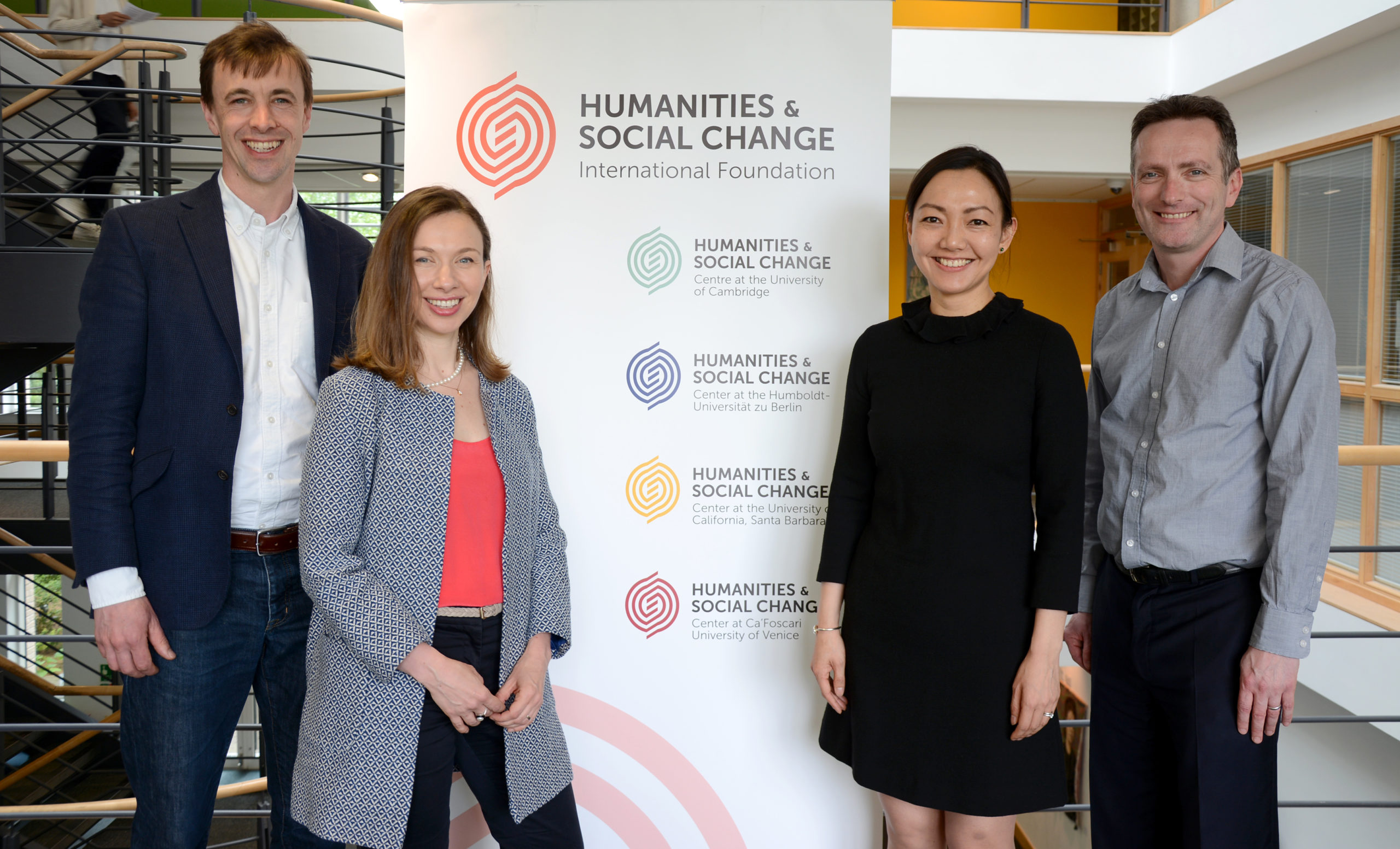 In October 2018, two new research projects – Expertise Under Pressure and Giving Voice to Digital Democracies – will inaugurate the Centre for the Humanities and Social Change, Cambridge. We are delighted to welcome Dr Anna Alexandrova, Principal Investigator of Expertise Under Pressure, to the Centre and asked about her hopes for the project.
In October 2018, two new research projects – Expertise Under Pressure and Giving Voice to Digital Democracies – will inaugurate the Centre for the Humanities and Social Change, Cambridge. We are delighted to welcome Dr Anna Alexandrova, Principal Investigator of Expertise Under Pressure, to the Centre and asked about her hopes for the project.
Dr Alexandrova is a Senior Lecturer in Philosophy of Science at Cambridge University and a Fellow of Kings College. Her book A Philosophy for the Science of Well-being appeared with Oxford University Press in 2017. Read her biography here.
Q. Dr Alexandrova, which aspect of Expertise Under Pressure do you find most exciting?
Our goal is to understand what it means to be a responsible and credible expert in a world of genuine uncertainty, time pressure, new data driven methods, and often deep ideological differences. Because we are a team with exactly the right mix of backgrounds, we can tackle the relevant aspects together using a variety of approaches: Emily as the engineer and a frequent expert witness herself, Mike and Rob as public policy scholars and me as a philosopher of science. We want to see what challenges experts face when making judgments, what makes these judgments trustworthy, and whether perhaps there are certain especially complex problems about which there is no such thing as expertise. The idea of intense collaborative learning from such brilliant and open-minded colleagues on a topic that genuinely grabs me is what excites me the most.
Q. How does your own area of interest relate to the project’s primary research questions?
For me this is the long awaited opportunity to get back to the big question that initially brought me to philosophy twenty years ago – whether social knowledge is somehow special or inferior to natural knowledge and whether therefore expertise in social science is less credible. I first came across this idea as a master’s student at the London School of Economics but I believe it touched me especially deeply because of my experience coming of age, as the Soviet Union was collapsing around me. There were many apparent experts with strong opinions about how to organise an economy and how to live in a proper civilised way. None of them, it seems, got their way in the end and Russia missed an opportunity at a tremendous cost to itself and the whole world. Were those claims of expertise all an elaborate con? A tragedy of overconfidence? This sad inspiration notwithstanding I remain an optimist about the possibility of social science that is at once trustworthy, empirical, and respectful of value judgments. I believe this possibility needs a new defense for our age of extreme political division and skepticism.
Q. What are your hopes for the Centre for the Humanities and Social Change?
I am thrilled to be part of an initiative that places humanities at the heart of imagining and effecting change. For me perspectives from humanities bring depth, complexity, and ambivalence to any attempt at making the world better with simple technocratic solutions (be it big data, GM crops, nudges, etc). But as well as forcing us to stop and think, ideas rooted in arts, history, and philosophy are the great sources of inspiration for big and ambitious transformations.

From left to right: Robert Doubleday, Anna Alexandrova, Emily So, Michael Kenny
Meet the Expertise Under Pressure Team
• Dr Anna Alexandrova, Principal Investigator
• Professor Michael Kenny, Co-Investigator
• Dr Emily So, Co-Investigator
• Dr Robert Doubleday, Co-Investigator
• Dr Hannah Baker, Research Associate
• Dr Federico Brandmayr, Research Associate
• Dr Cléo Chassonnery-Zaïgouche, Research Associate
• Katie Cohen, Research Assistant

